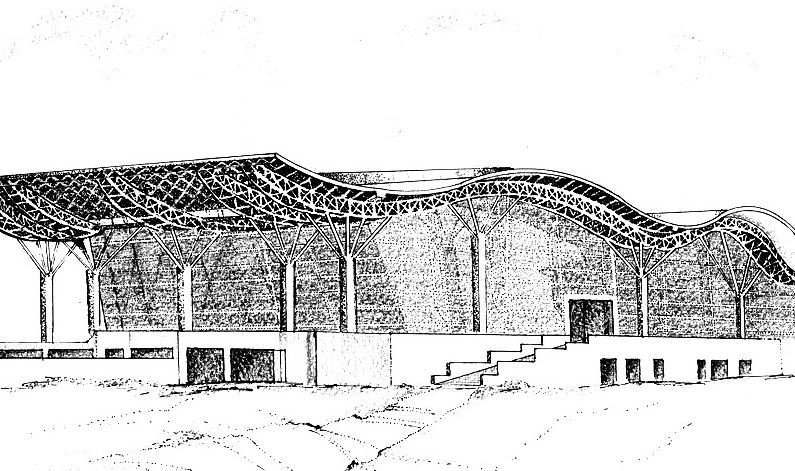A combination of science and art, architecture is an interesting career choice, but not an easy one at all. Do you have what it takes? Find out how to become an architect here.
How to Be an Architect in India
Architects design buildings, urban spaces, landscapes and even cities. A combination of art and science, architecture always appeals to young creative minds as a good career option. But getting admission in architecture and the process of becoming an architect is also often misunderstood.
In India, to become a professional architect, a student needs to take B.Com with maths or non-medical after 12th, and then take the architecture college entrance exam, NATA or JEE to get admission for B.Arch. B.Arch is a 5-year professional degree program in India for architecture.
B.Arch program is offered by many colleges all over India and includes a semester of internship and a semester of thesis. Graduating B.Arch makes you qualified to apply for a license in architecture, which you need in order to open your own firm or approve building designs for construction.
Contents: Jump to Section
1.2 Entrance Exams
1.3 Academic Qualifications/ Options
1.4 License Required
1.5 Internship/ Work Experience Required
1.6 Cost of Tuition and Training
1.7 Competition
1.8 General Age to Start Professional Career for Architects
1.9 Governing Bodies
2.2 Companies & Institutions That Employ Architects
2.3 Growth Prospects
2.4 Entrepreneurship Opportunities
2.5 Salary Range
3.2 Top Universities in World
3.3 Famous Personalities
3.4 Useful Links

1. Becoming an Architect: Architecture Career Requirements
1.1.1 Courses Taken at School
Science – physics, maths, chemistry + Local language + English
Architecture candidates may take Commerce or Science stream, but maths & English are compulsory. Some colleges accept only science students, so check their requirements.
1.1.2 Courses Taken at College
Architectural design, architectural drawing, computer modeling/ rendering softwares like AutoCAD & Photoshop, architectural graphics, structures, building construction, building materials, urban design, architectural photography.
First year has core subjects like architecture design, architecture drawing, graphics, computer-based design and building construction.
Second year onwards still have these core subjects in addition to electives you may choose, including photography, sculpture, interiors, urban design, etc.
1.2 Entrance Exams
NATA, JEE (for IITs)
1.3.1 Academic Qualifications/ Degree Required
B.Arch
Bachelor’s degree in architecture is 5 years long in most Indian colleges, longer than other professional degrees. It also requires thesis. A post-graduate degree (PG) will sometimes let you earn a higher salary, depending on your college or job.
1.3.2 Post-Graduate Degree Requirements/ Options
M.Arch, MS in Architecture/Urban Design/Planning, Ph.D or M.Des.
Master in architecture is the core masters degree option. Some students also diversify into other related fields by pursuing Master of Science or Master of Design in urban design, planning, technology, sustainability or interiors. Furthermore, you could even get a PhD, if teaching architecture is your dream.
1.4 License Required
License is required for private practice.
1.5 Internship/ Work Experience Required
6 month internship is a part of BArch program, which is required in the 4th year.
1.6 Cost of Tuition and Training
Tuition fees are very affordable in government colleges. Merit students get scholarships in certain colleges.
Tuition is comparatively higher in private institutions, but is still lower than medical or engineering schools.
1.7 Competition
College entrance exam is competitive for top colleges.
During your profession, certain geographic locations, especially developed ones, may have lots of competition for high paying jobs.
1.8 General Age to Start Professional Career for Architects
22
1.9 Governing Bodies
The Indian Institute of Architects (IIA)

2. Professional Opportunities/ Career Growth for Architects
2.1 List of Careers in Architecture
Urban Design, Landscape Design, Urban Planning, Sustainability Consultant, Building Services consultant, Project manager, 3D modeler/animator, Architectural technology consultant, Robotics specialist, Interior architect, Product designer
The world of architecture is full of sub-professions that a student can take up after college or even after a few years of experience. Some of the related fields are still designers, such as urban design, urban planning, interior design, facade design, product or lighting design.
Some other specializations require professionals to step away from designing roles, like consultancy in sustainability or building services. Project management is also an option, and technology, such as dealing with laser-cutting, 3D printers or robotics.
2.2 Companies & Institutions That Employ Architects
Large corporations, hospitals/clinics, healthcare, factories/ manufacturing, education, hospitality, real estate, teaching.
Most architects work in small or medium-sized architecture firms. However, joining a large corporation is also an option, such as a big technology or commerce company that builds lots of warehouses, offices, etc. Similarly, large chains of hotels, colleges, hospitals or factories may employ architects for their in-house design projects.
Real estate companies also employ architects for either small design projects like guest rooms, or large projects like housing, office campuses, townships, etc. Lastly, architecture schools employ architects as part or full-time professors.
2.3 Growth Prospects
Growth prospects depend on many factors like entrepreneurial skills, presentation/communication and networking abilities. Your proactive nature in taking up responsibility and hard-work also matter a lot.
Additionally, ability to collaborate with clients & different professionals like contractors, labor factors into success. Also, ability to responsibly follow bye-laws, high attention to detail are very important in determining success. Similarly, successful architects have leadership abilities and ability to work under stress.
2.4 Entrepreneurship Opportunities
Architects often start their own private practice, or architecture firm. Another option is to start a private real estate development company. Some architects also start a consulting firm that gives consultancy to building service companies, designers, institutions, media and research firms.
2.5 Salary Range
12K-35K per month for fresh graduates.
30K-1.2L per month for masters graduates with 2-4 yr experience.

3. Further Resources
3.1 Top Architecture Colleges in India
JJ College of Architecture, SPA (School of Planning & Architecture), CCA (Chandigarh College of Achitecture), Rizvi, CEPT University (Centre for Environmental Planning and Technology), Jadavpur University.
3.2 Top Universities in World
Harvard University, MIT (Massachusetts Institute of Technology), Columbia University, ETH Zurich, Bartlett, University of California Berkely, National University of Singapore.
3.3 Famous Personalities
Frank Gehry, Zaha Hadid, Le Corbusier, Frank Lloyd Wright, Norman Foster, Santiago Calatrava, Walter Gropius.
3.4 Useful Links
Department of Architecture, SPA
Council of Architecture

Shilpa Ahuja is the editor of Career Nuts. She has a Masters in Design Studies (MDesS) degree from Harvard University Graduate School of Design, class of 2011. Shilpa is an entrepreneur and founder of Shilpa Ahuja Digital Media, an online publishing company that includes HowtoGetinto-Harvard.com, a Harvard admissions guide and ShilpaAhuja.com, one of India’s most-read digital fashion magazines. She is also the creator of SlubShop, a trend-based online fashion store, and Audrey O., a comic series that represents the lifestyle of millennial women. She also has a bachelor’s degree in architecture from Chandigarh College of Architecture (B.Arch), class of 2007. She has worked in interior project management for The Park hotels and in graphic design and education technologies for Harvard Law School. Originally from Chandigarh, Shilpa enjoys art, creative writing, fashion and travel. Her art has been exhibited at Harvard Graduate School of Design and the Aroma Hotel, Chandigarh. Her work has been published in University of Fashion blog, Jet Airways magazine, Chandigarh Times and Indian Design & Interiors magazine. She is also the author of the book “Designing a Chinese Cultural Center in India”.


First of all, great article, I loved it! I always wished to become an architect, and gladly I am .